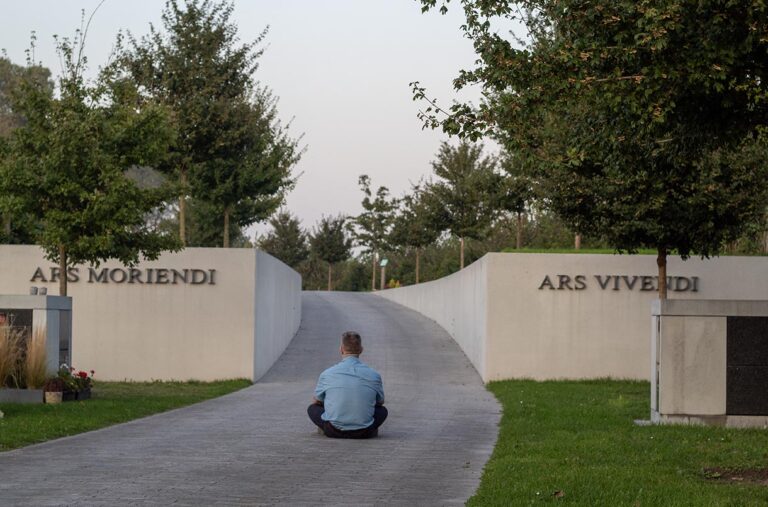Rebuilding Life After Loss: A Coach’s Perspective
February 1st, 2020, D-day, which has nothing to do with the landing of the Allied forces in Normandy, but it’s the day that I became self-employed, hence the use of the expression.
Looking back at it today, the logical reasoning behind it was rather superficial. Just get the paperwork done and get going. But was it that ‘simple’?
In all honesty, no. Craftsmen like electricians, plumbers or computer technicians are essential trades in our current society. Most of them have learned the fundamentals at school and gained experience and potentially specialised through the years. That applies to the majority of people who study, find a job and fall into a routine, living their lives.
But coaches are different. Most of them had a job, whether they were successful or not, and routines, but something has happened in their lives that shifted their consciousness fundamentally and in most cases they were unable to resolve those issues at first. The system fell short on them, but by facing their challenges they became inspired to find their unique way to grow and more importantly, they worked out a method to pass on their knowledge by guiding others.
Professional therapists are trained to remain objective in their guidance and offer pointers that may or may not create insights for their patients. Some are more successful than others, but it all depends on the connection between them and their clients. But they rarely have the first-hand experience that most coaches have, with all respect for their professionalism.
My story isn’t that much different. I used to be an ICT Systems Engineer for almost twenty years until my late wife passed away and all cards fell to the ground and were shuffled again. The loss was rather difficult to cope with, although the events have taught me more about myself than I knew at the time. Somehow I gained a deeper understanding about what has motivated me through time and that fundamental shift was needed to rebuild my life!
Mourning can do that to someone. Furthermore, based on those experiences, I was able to broaden my horizons and work out my bereavement counselling program which consists of five fundamental steps:
- The practicalities: every loss in life comes with its own difficulties, regardless of the causes or circumstances. It takes time to start to establish the how and effectively set all steps in motion to disentangle the financial and practical issues. Without this step, one will never be able to truly create a stable foundation to move through the next steps.
- The emotional process: grieving is something that someone has to endure! It cannot be avoided nor ignored. However, if you’re open for those lessons, it will help you grow as a human. The five stages of grieving -denial, anger, bargaining, depression and acceptance – offer a framework to identify the way you’re feeling. Undergoing them consciously will build resilience, enabling someone to look at life more objectively.
- Redefine your identity: Losing someone close can shift one’s awareness fundamentally. The shroud of ignorance from before will fall and that can’t be undone. That shift in one’s personality can have an impact on everything: your perspective on life, your interactions with others, … The acknowledgement of that new identity will have a huge impact on your lifestyle, enabling you to embrace things -old and new- with your newfound perspective.
- Rebuild your life: The redefinition of your identity mostly concludes the most difficult part of your mourning trajectory and it indicates the time to pick up your life again. A logical consequence of this is the creation or adjustment of your current goals in life. You can fall back into your old routines if they were satisfactory, but most people want to do more to intensify their lifestyle, truly live instead of just surviving.
- Look ahead in a practical manner: in the four previous steps, we have mostly explored someone’s inner world and it’s time to really move forward. Looking ahead can imply multiple things: building a sound financial foundation for the rest of one’s life, find a job that fills you with satisfaction, set new goals that enable you to thrive instead of survive, implementing measurements that prevent previous difficult challenges… These words might seem vague and hollow, and yet they are not… they are your new goals and there is no one else but you that can specify them.
As described before, there is more to mourning than meets the eye. That’s where an experienced guide makes the difference between remaining in that cycle of struggle and really moving on. As coach I also include your HSP and empathic abilities into the guidance to truly embrace your nature to thrive, instead of just surviving.
At this point in time, I can’t tell you what you might need or what you’re going through, just reach out if you need a hand.
These blogposts also refer mourning and bereavement counselling, feel free to explore them.
- I miss you
- What is the difference between living and surviving?
- Do our feelings influence our selection process after loss?
